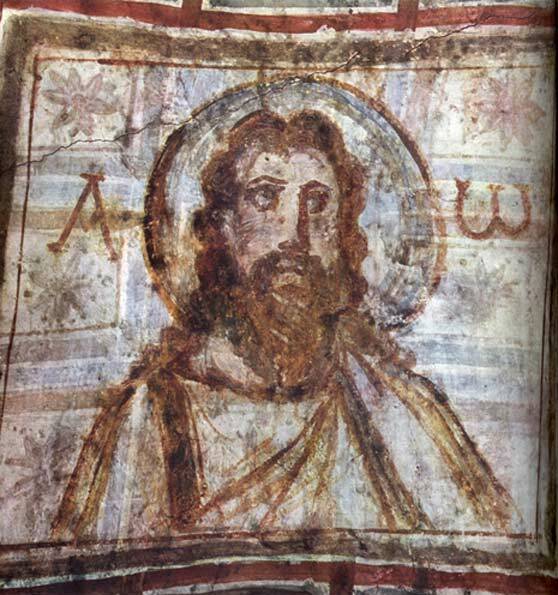Jesus Christ
His former neighbors recognized Jesus by his previous occupation: “Isn’t this the tektōn?” (Mark 6:3; Matt. 13:55). Tektōn has been rendered as “carpenter” since William Tyndale’s English Bible translation (1526). Yet scholar Ken Campbell suggests “builder” as a more accurate translation, writing, “In the context of first-century Israel, the tektōn was a general craftsman who worked with stone, wood, and sometimes metal in large and small building projects.”
For Jesus’ family to work in a trade indicates they were part of what we’d call the lower middle-income class of that day. Furthermore, tradition suggests that his father Joseph died a few years prior to Jesus entering public ministry. If that were the case, Jesus as the eldest son was the one primarily responsible to see family living expenses were met through his and his brothers’ work as day laborers (Matt. 13:55–56).
These “business situated” parables offer a continuing reminder of Jesus’ hidden years that don’t get much attention. And consider that — unless there was an infusion of moral virtue when Jesus was a baby — we can infer that Jesus’ day job, where he interacted with people and the elements of nature, played a key role in his own character formation to become the kind of person the Gospels portray (cf. Luke 2:52, Heb. 5:8).
“Regardless what anyone may personally think or believe about him, Jesus of Nazareth has been the dominant figure in the history of Western culture for almost twenty centuries. If it were possible, with some sort of super-magnet, to pull up out of that history every scrap of metal bearing at least a trace of his name, how much would be left?”
Jesus through the Centuries; His Place in the History of Culture (New Haven: Yale University Press, 1985)
The only in-depth account we have of Jesus comes from the gospels, and John tells us that they only record a fraction of all Jesus did:
“Jesus did many other things as well. If every one of them were written down, I suppose that even the whole world would not have room for the books that would be written” (John 21:25, New International Version).
Even if the gospels don’t offer a complete and unabridged biography of Christ’s earthly life, they’ve given the world enough information to keep poring over His story. And for the 2.3 billion Christians in the world, the gospels tell the remarkable story of God coming to earth to rescue humanity.
Between the well-known stories and parables are little details that illuminate points of interest about Jesus, his disciples, and first-century life in the near east. Here are 40 interesting facts about Jesus’ life.
1. Jesus gets his name from an angel
“The angel went to her and said, ‘Greetings, you who are highly favored! The Lord is with you.’ Mary was greatly troubled at his words and wondered what kind of greeting this might be.
But the angel said to her, ‘Do not be afraid, Mary; you have found favor with God. You will conceive and give birth to a son, and you are to call him Jesus. He will be great and will be called the Son of the Most High. The Lord God will give him the throne of his father David, and he will reign over Jacob’s descendants forever; his kingdom will never end’” (Luke 1:28–33)
2. Jesus is a common first-century name
If God was going to become a human, you’d think that He’d choose a powerful and rare name. That’s just not the case. The name “Jesus” was the John Smith of the first-century. When Christ walked on the earth, He didn’t chase after prominence—and that’s even demonstrated in the name that He chose.
3. Jesus last name wasn’t Christ
We hear “Jesus Christ” so often that it’s easy to think that Christ is Jesus’ surname. It’s not. In first-century Palestine, people didn’t have last names. People identified others by referencing their parents:
“They said, ‘Is this not Jesus, the son of Joseph, whose father and mother we know? How can he now say, “I came down from heaven”'?" (John 6:42)
Christ comes from the Greek for Christos, which means “anointed one.”

Jesus Christ-عیسی مسیح
16 بعضی از فریسیان گفتند، آن شخص از جانب خدا نیست، زیرا که سَبَّت را نگاه نمیدارد. دیگران گفتند، چگونه شخص گناهکار میتواند مثل این معجزات ظاهر سازد. و در میان ایشان اختلاف افتاد.

Jesus Christ
47 پس رؤسای کَهَنَه و فریسیان شورا نموده، گفتند، چه کنیم زیرا که این مرد، معجزات بسیار مینماید؟


